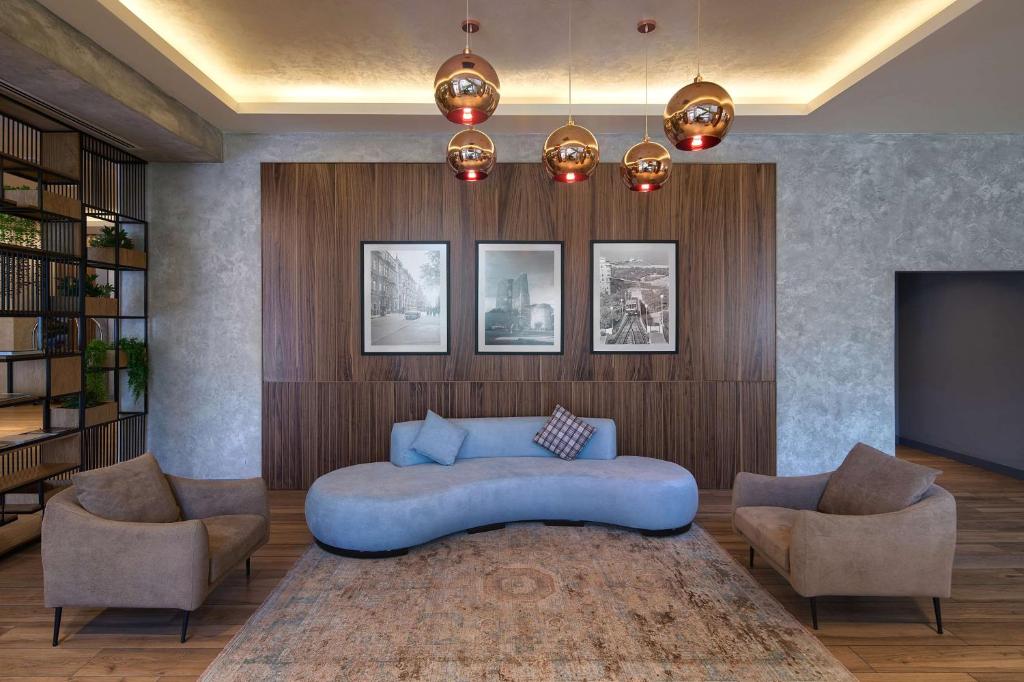Azerbaijan
From undulating hills and mud volcanoes to timeless villages and bustling cities, Azerbaijan is one outstanding natural beauty lounging beside the Caspian Sea.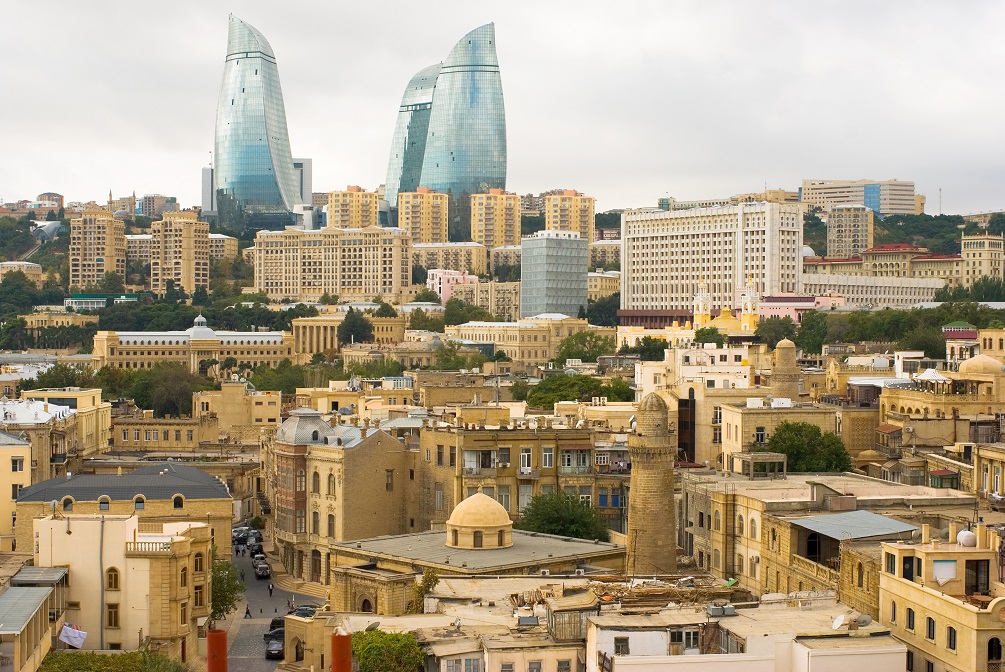
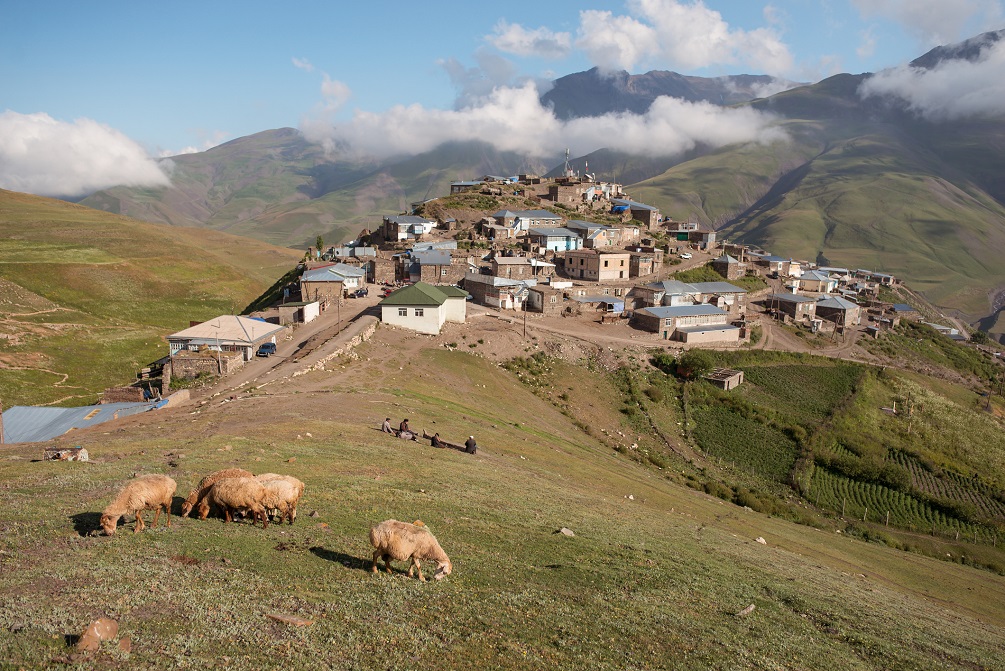


Azerbaijan is transcontinental, residing between continental Europe’s easternmost borders, South and Central Asia, and the Middle East.
Russia and Georgia are on Azerbaijan’s northern border. In the west and southwest lies Armenia, while Iran is in the South. The Caspian Sea forms the country’s eastern border. Baku, the capital, is located beside the Caspian Sea.
Nakhichevan, an autonomous region of Azerbaijan, lies southwest of its home territory. It stands between Iran to the south and west, Turkey to the northwest and Armenia to the east and north.
Azerbaijan contains various landscapes, from mountain ridges and highlands to plains and lowlands.
The Greater Caucasus mountain range lies to the north on the border between Europe and Asia. It contains the highest peaks in the country and creates a glorious mountainous backdrop in several villages.
Azerbaijan is home to roughly 350 mud volcanoes located in a small area outside Baku and nearby the Caspian Sea. Also, the burning mountain (Yanar Dag), a hillside that continuously blazes with a natural gas fire, lies near Baku.
The country’s coastline along the Caspian Sea features stunning beaches, like Shikhov beach and the Absheron Peninsula Beaches.
There are many rivers, lakes, ponds and canals in the country, some of which flow into the Caspian Sea.
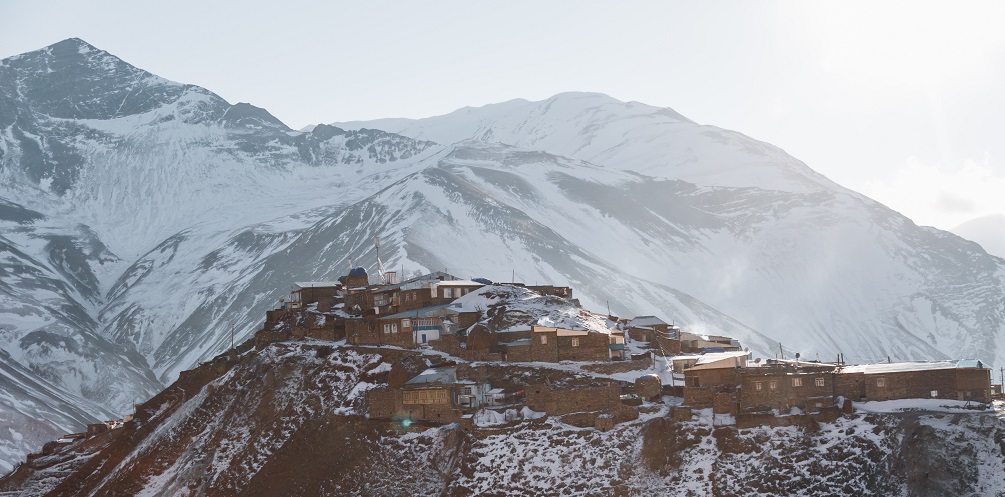


With nine out of eleven climates observed in Azerbaijan, the weather varies from hot to balmy across the country. The climatic diversity is linked to its unique location beside the Caspian Sea and its varying landscapes.
The Caspian Sea and Greater Caucasus mountains regulate Azerbaijan’s climate. Because of the higher altitude, the mountainous areas of Azerbaijan are much cooler than the lowlands.
In the southwest, it’s typically subtropical to humid, while it’s continental and dry in the central and eastern regions.
Summer in Azerbaijan is from early June to late August. Baku’s proximity to the Caspian Sea rewards the capital with cool weather, averaging 25 °C (77 °F) in July. However, it can also get quite hot during this time, especially in Baku where temperatures can reach 40 °C. The capital is prone to windy conditions as well.
Summer is the best time to soak up some sun and watch golden sunsets on the Absheron. If you’re keen on catching the Azerbaijan Grand Prix hosted annually in Baku, it usually occurs during this season.
You can always escape the lowlands during summer and visit Sheki and Quba, where the weather might be best for a hike or sunbathing.
Snow, cold weather, and the Christmas and New Year’s celebrations in Baku are the highlights of winters in Azerbaijan. The season runs from December through to the end of March. The coldest month in the capital in January, where temperatures average 4 °C (39.2 °F).
The ski resorts of Shahdag and Tufandag are worth visiting during winter.
Autumn (October to December) and spring (April to May) are perfect for leisurely mountain hikes and celebrating the spring and New Year festival, Novruz.
The most rainfall occurs in Lenkaran, Azerbaijan’s resort town, while Baku receives about 200 mm (8 in) of rain in a year.
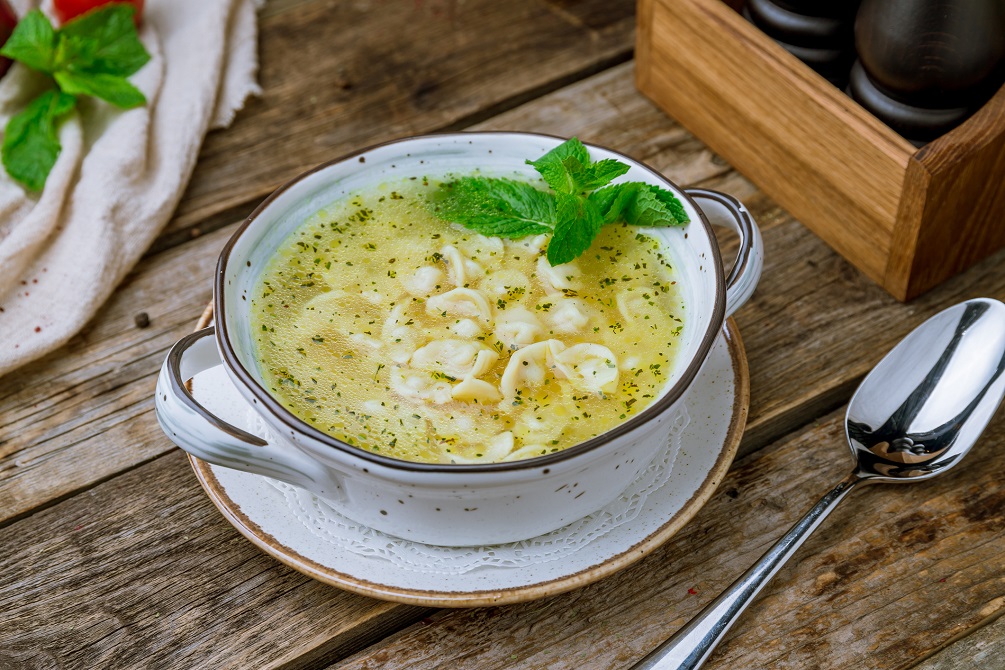


Much like its residents and culture, Azerbaijan cuisine is a melting pot of flavorings and dishes from surrounding regions. Some of their signature dishes are a Middle-Eastern-Soviet blend, with influences from Turkish, Iranian, and Russian cuisines.
Azerbaijanis meals comprise seasonal vegetables, fresh herbs, and bread. The national dish is plov, which is rice cooked in stock or broth with vegetables or meat.
Other dishes you must try when traveling around Azerbaijan include Ovrishta, slow-cooked pomegranate marinated chicken with chestnuts and barberries. In the north-western regions of the country, a dumpling soup called dushbara is a common delicacy.
Piti is another meat-based dish to try. It’s one of the most traditional foods of Azerbaijan, comprising lamb, vegetables, and chickpeas. The dish is usually cooked in a ceramic pot with a lump of lamb fat on top.
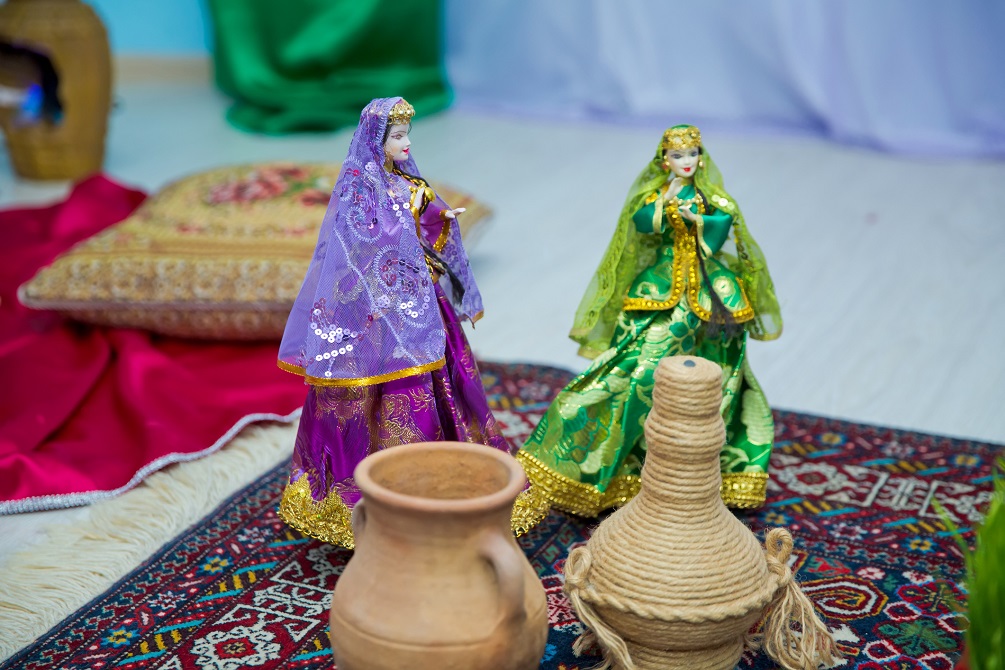


There aren’t any dress code restrictions for both men and women when traveling to Azerbaijan.
In Baku, you’ll see people dressed in casual and conservative wear. Muslim dress isn’t required either, especially for women.
It comes down to the season and region you’re visiting when deciding what to wear in Azerbaijan.
You should pack comfortable and versatile clothing that can be layered and a good pair of walking shoes.
A raincoat or waterproof jacket is also a good idea when visiting during autumn since it’s the rainy season.
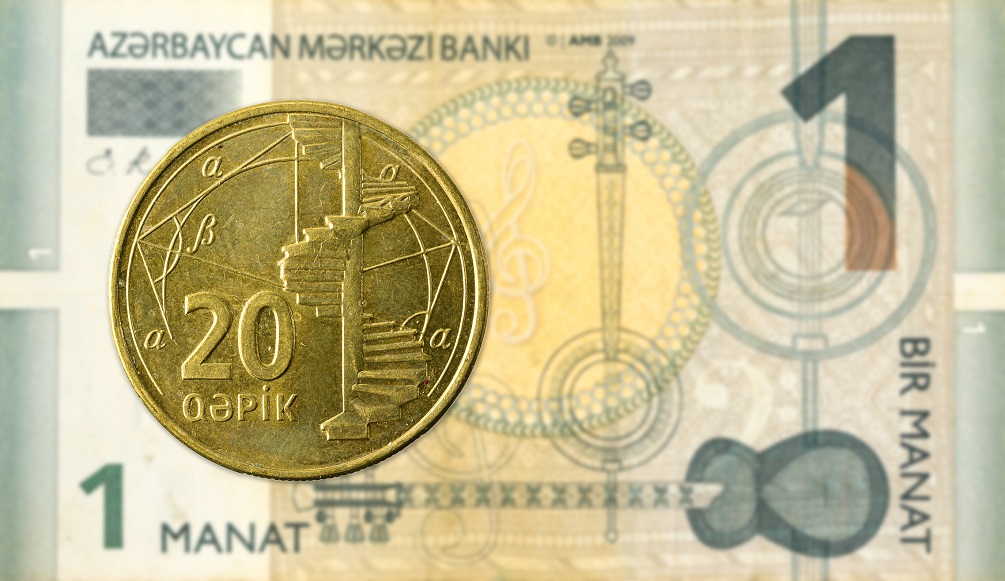


The local tender used to pay for all goods and services in Azerbaijan is the manat (AZN). One manat is subdivided into 100 gapiks.
Banknotes come in denominations of 1, 5, 10, 20, 50, 100, 200 manat and coins in 1, 3, 5, 10, 20, 50 gapiks.
Although cash is a common way of paying for goods and services, cards are widely accepted in major towns. In smaller, more remote areas, it’s best to travel with the local currency.
MasterCard/Visa ATMs can be found in major towns and regional centers. In small villages, settlements, and rural areas, you might not find any ATMs. Therefore, withdraw what you need in Baku before leaving the city.
Ensure you inform your bank that you’re traveling to Azerbaijan before departing. This will prevent them from blocking your card for anti-fraud reasons.
Foreign currency is not accepted anywhere in the country, but it’s easy to exchange the pound for the manat. You can exchange your money at a bank or one of the larger hotels in Baku.
Remember, beyond the capital, it may be harder to exchange money.
Azerbaijani is the official language and mother tongue of Azerbaijan. It’s a Turkish dialect with Persian, Arabic and European language influences.
Over 90 percent of the population speak Azerbaijani while a few residents in the capital, Baku, speak English and Russian.
Small minorities speak Armenian and other languages like Georgian and Udi.
It’s best to learn a few phrases and sayings to get by in Azerbaijan and thoroughly immerse yourself in the culture. This will be very handy while visiting rural areas. Here are a few examples of commonly used terms and phrases, including their pronunciations:
- Hi/Hello – Salam
- Good morning – Sabahınız xeyir (pronounced: sabahiniz heyir)
- How are you? – Necəsən? (pronounced: nejasan)
- I’m good – Yaxşıyam (pronounced: yahshiyam)
- Good night – Gecəniz xeyrə (pronounced: gejeniz heyre)
- Bye – Sağ olun
- Thank you – Çox sağ olun (pronounced: choh sag olun)
- Where is x? – x haradadır (pronounced: hardadi)
- How much does it cost? – Neçəyədir (pronounced: necheyedir)
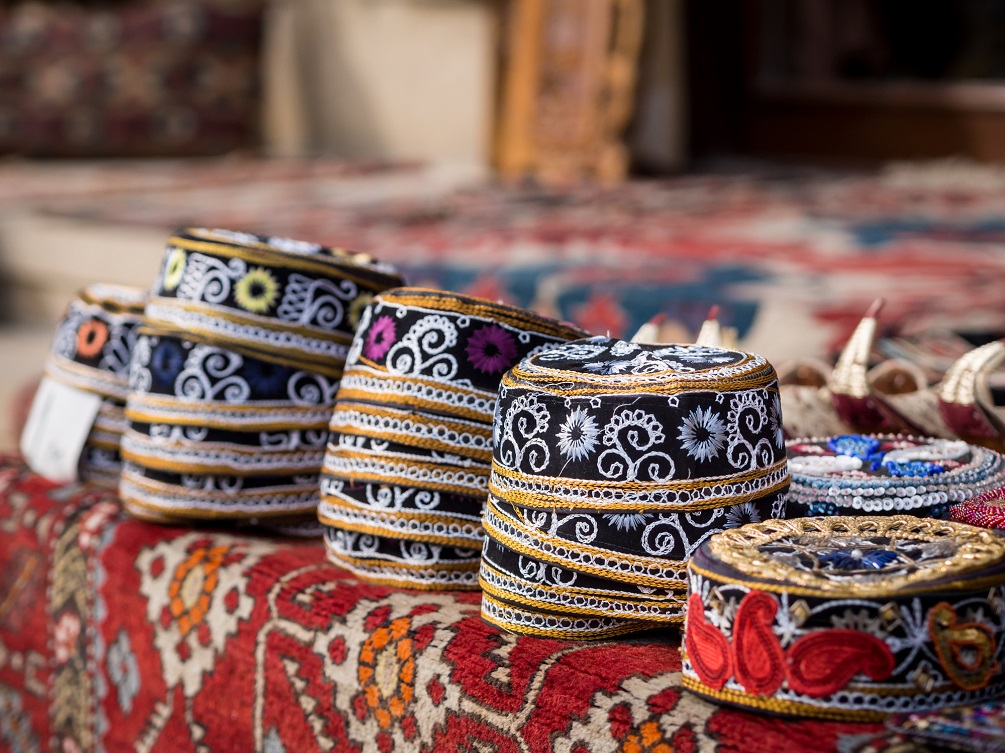


Azerbaijan’s culture is not much different from Turkish culture. They share a similar language, heritage, and ethnicity. The major distinction comes from the Iranian and Caucasian traditions that have influenced Azerbaijan’s culture.
Although Turkish pop music, soap operas, and old music are popular in Azerbaijan, they set themselves apart with aspects like folk arts.
The vibrant folk art of Azerbaijan reflects the lifestyle, qualities, and aesthetic tastes of its people. Carpet making is a long-standing tradition and some designs can be found in renowned museums around the world.
Azerbaijanis are a mix of religious and secular people. About 97% of the population are followers of Islam, while a smaller portion represents Christians and Jews.
When you’re speaking to someone you’re not well acquainted with, use an appropriate honorific followed by the person’s name.
If the person speaks English, you can use Mr or Mrs. Ms doesn’t exist in Azerbaijani. Mrs is ‘Xanım’ (pronounced ‘hanm’) in Azerbaijani while Mr is Cənab (pronounced ‘jenab’).
It’s customary to bring a gift when invited to a local home. It doesn’t have to be something expensive, since the thought will count more than the price.
Behavior you should avoid includes:
- Blowing your nose or picking your teeth during meals,
- Chewing gum mid-conversation,
- Raising your voice in public,
- Bear hugging or slapping someone on the back as a greeting, and
- Using swear words.
Public displays of affection aren’t frowned upon in larger cities, but you may receive unwanted attention from the public. In small towns and villages, it’s best to avoid any PDA.
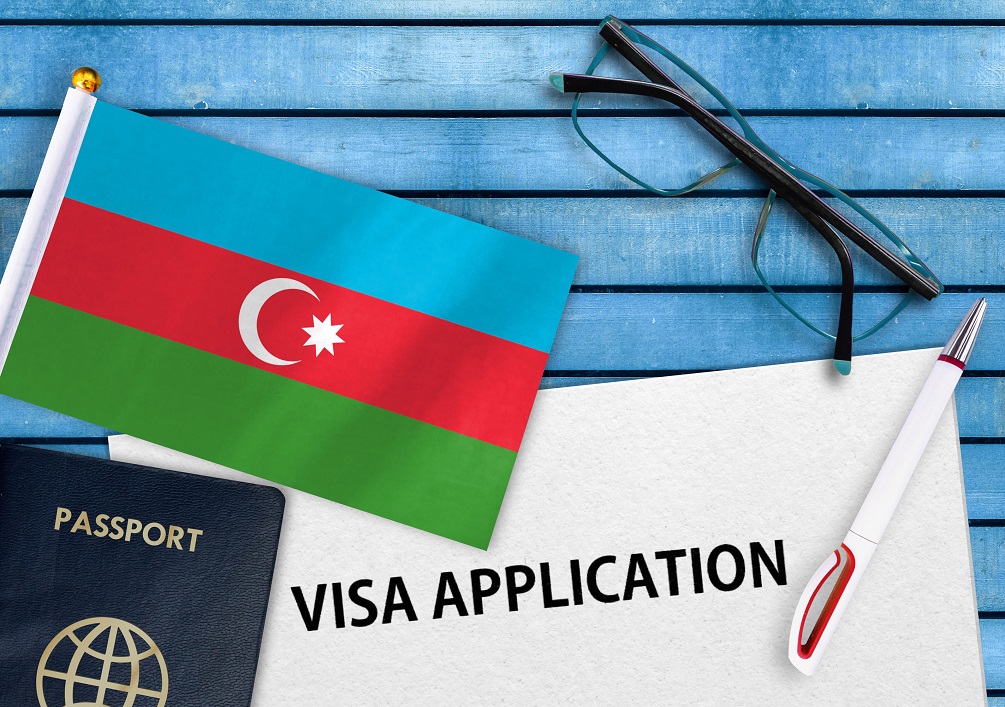


British nationals must apply for a visa before traveling to Azerbaijan. You have the choice of applying for an e-visa or a regular visa.
You must apply for an e-visa through the ASAN Visa (e-visa) service. It can take up to 72 hours to get your visa, but it’s possible to expedite the process for a fee. You’ll receive a 30-day single entry visa.
The regular visa is available via the Azerbaijan Embassy-affiliated Visa Service Centre in the UK. Make sure to apply at least one month before your chosen travel date.
If you intend to stay in Azerbaijan for over 15 days, you must register with the State Migration Service of the Republic of Azerbaijan. This can be done at the State Migration Service or online within 15 days of arriving in the country.
For stays of over 30 days, you’ll have to apply for a temporary residence card.
You should have a valid visa when departing Azerbaijan. If you overstay your visa, you’ll be fined an amount between AZN300 and AZN400. Also, you’ll have to get an ‘Exit Permit’ letter from the State Migration Service before your departure.
Your passport should have a minimum validity of six months when you enter Azerbaijan.



You should bring along a travel adapter with surge protection and a convertor for hairdryers and hot tools.
The power sockets operate at a standard voltage of 220 V and a frequency of 50 Hz.






Azerbaijan is transcontinental, residing between continental Europe’s easternmost borders, South and Central Asia, and the Middle East.
Russia and Georgia are on Azerbaijan’s northern border. In the west and southwest lies Armenia, while Iran is in the South. The Caspian Sea forms the country’s eastern border. Baku, the capital, is located beside the Caspian Sea.
Nakhichevan, an autonomous region of Azerbaijan, lies southwest of its home territory. It stands between Iran to the south and west, Turkey to the northwest and Armenia to the east and north.
Azerbaijan contains various landscapes, from mountain ridges and highlands to plains and lowlands.
The Greater Caucasus mountain range lies to the north on the border between Europe and Asia. It contains the highest peaks in the country and creates a glorious mountainous backdrop in several villages.
Azerbaijan is home to roughly 350 mud volcanoes located in a small area outside Baku and nearby the Caspian Sea. Also, the burning mountain (Yanar Dag), a hillside that continuously blazes with a natural gas fire, lies near Baku.
The country’s coastline along the Caspian Sea features stunning beaches, like Shikhov beach and the Absheron Peninsula Beaches.
There are many rivers, lakes, ponds and canals in the country, some of which flow into the Caspian Sea.



With nine out of eleven climates observed in Azerbaijan, the weather varies from hot to balmy across the country. The climatic diversity is linked to its unique location beside the Caspian Sea and its varying landscapes.
The Caspian Sea and Greater Caucasus mountains regulate Azerbaijan’s climate. Because of the higher altitude, the mountainous areas of Azerbaijan are much cooler than the lowlands.
In the southwest, it’s typically subtropical to humid, while it’s continental and dry in the central and eastern regions.
Summer in Azerbaijan is from early June to late August. Baku’s proximity to the Caspian Sea rewards the capital with cool weather, averaging 25 °C (77 °F) in July. However, it can also get quite hot during this time, especially in Baku where temperatures can reach 40 °C. The capital is prone to windy conditions as well.
Summer is the best time to soak up some sun and watch golden sunsets on the Absheron. If you’re keen on catching the Azerbaijan Grand Prix hosted annually in Baku, it usually occurs during this season.
You can always escape the lowlands during summer and visit Sheki and Quba, where the weather might be best for a hike or sunbathing.
Snow, cold weather, and the Christmas and New Year’s celebrations in Baku are the highlights of winters in Azerbaijan. The season runs from December through to the end of March. The coldest month in the capital in January, where temperatures average 4 °C (39.2 °F).
The ski resorts of Shahdag and Tufandag are worth visiting during winter.
Autumn (October to December) and spring (April to May) are perfect for leisurely mountain hikes and celebrating the spring and New Year festival, Novruz.
The most rainfall occurs in Lenkaran, Azerbaijan’s resort town, while Baku receives about 200 mm (8 in) of rain in a year.



Much like its residents and culture, Azerbaijan cuisine is a melting pot of flavorings and dishes from surrounding regions. Some of their signature dishes are a Middle-Eastern-Soviet blend, with influences from Turkish, Iranian, and Russian cuisines.
Azerbaijanis meals comprise seasonal vegetables, fresh herbs, and bread. The national dish is plov, which is rice cooked in stock or broth with vegetables or meat.
Other dishes you must try when traveling around Azerbaijan include Ovrishta, slow-cooked pomegranate marinated chicken with chestnuts and barberries. In the north-western regions of the country, a dumpling soup called dushbara is a common delicacy.
Piti is another meat-based dish to try. It’s one of the most traditional foods of Azerbaijan, comprising lamb, vegetables, and chickpeas. The dish is usually cooked in a ceramic pot with a lump of lamb fat on top.



There aren’t any dress code restrictions for both men and women when traveling to Azerbaijan.
In Baku, you’ll see people dressed in casual and conservative wear. Muslim dress isn’t required either, especially for women.
It comes down to the season and region you’re visiting when deciding what to wear in Azerbaijan.
You should pack comfortable and versatile clothing that can be layered and a good pair of walking shoes.
A raincoat or waterproof jacket is also a good idea when visiting during autumn since it’s the rainy season.



The local tender used to pay for all goods and services in Azerbaijan is the manat (AZN). One manat is subdivided into 100 gapiks.
Banknotes come in denominations of 1, 5, 10, 20, 50, 100, 200 manat and coins in 1, 3, 5, 10, 20, 50 gapiks.
Although cash is a common way of paying for goods and services, cards are widely accepted in major towns. In smaller, more remote areas, it’s best to travel with the local currency.
MasterCard/Visa ATMs can be found in major towns and regional centers. In small villages, settlements, and rural areas, you might not find any ATMs. Therefore, withdraw what you need in Baku before leaving the city.
Ensure you inform your bank that you’re traveling to Azerbaijan before departing. This will prevent them from blocking your card for anti-fraud reasons.
Foreign currency is not accepted anywhere in the country, but it’s easy to exchange the pound for the manat. You can exchange your money at a bank or one of the larger hotels in Baku.
Remember, beyond the capital, it may be harder to exchange money.
Azerbaijani is the official language and mother tongue of Azerbaijan. It’s a Turkish dialect with Persian, Arabic and European language influences.
Over 90 percent of the population speak Azerbaijani while a few residents in the capital, Baku, speak English and Russian.
Small minorities speak Armenian and other languages like Georgian and Udi.
It’s best to learn a few phrases and sayings to get by in Azerbaijan and thoroughly immerse yourself in the culture. This will be very handy while visiting rural areas. Here are a few examples of commonly used terms and phrases, including their pronunciations:
- Hi/Hello – Salam
- Good morning – Sabahınız xeyir (pronounced: sabahiniz heyir)
- How are you? – Necəsən? (pronounced: nejasan)
- I’m good – Yaxşıyam (pronounced: yahshiyam)
- Good night – Gecəniz xeyrə (pronounced: gejeniz heyre)
- Bye – Sağ olun
- Thank you – Çox sağ olun (pronounced: choh sag olun)
- Where is x? – x haradadır (pronounced: hardadi)
- How much does it cost? – Neçəyədir (pronounced: necheyedir)



Azerbaijan’s culture is not much different from Turkish culture. They share a similar language, heritage, and ethnicity. The major distinction comes from the Iranian and Caucasian traditions that have influenced Azerbaijan’s culture.
Although Turkish pop music, soap operas, and old music are popular in Azerbaijan, they set themselves apart with aspects like folk arts.
The vibrant folk art of Azerbaijan reflects the lifestyle, qualities, and aesthetic tastes of its people. Carpet making is a long-standing tradition and some designs can be found in renowned museums around the world.
Azerbaijanis are a mix of religious and secular people. About 97% of the population are followers of Islam, while a smaller portion represents Christians and Jews.
When you’re speaking to someone you’re not well acquainted with, use an appropriate honorific followed by the person’s name.
If the person speaks English, you can use Mr or Mrs. Ms doesn’t exist in Azerbaijani. Mrs is ‘Xanım’ (pronounced ‘hanm’) in Azerbaijani while Mr is Cənab (pronounced ‘jenab’).
It’s customary to bring a gift when invited to a local home. It doesn’t have to be something expensive, since the thought will count more than the price.
Behavior you should avoid includes:
- Blowing your nose or picking your teeth during meals,
- Chewing gum mid-conversation,
- Raising your voice in public,
- Bear hugging or slapping someone on the back as a greeting, and
- Using swear words.
Public displays of affection aren’t frowned upon in larger cities, but you may receive unwanted attention from the public. In small towns and villages, it’s best to avoid any PDA.



British nationals must apply for a visa before traveling to Azerbaijan. You have the choice of applying for an e-visa or a regular visa.
You must apply for an e-visa through the ASAN Visa (e-visa) service. It can take up to 72 hours to get your visa, but it’s possible to expedite the process for a fee. You’ll receive a 30-day single entry visa.
The regular visa is available via the Azerbaijan Embassy-affiliated Visa Service Centre in the UK. Make sure to apply at least one month before your chosen travel date.
If you intend to stay in Azerbaijan for over 15 days, you must register with the State Migration Service of the Republic of Azerbaijan. This can be done at the State Migration Service or online within 15 days of arriving in the country.
For stays of over 30 days, you’ll have to apply for a temporary residence card.
You should have a valid visa when departing Azerbaijan. If you overstay your visa, you’ll be fined an amount between AZN300 and AZN400. Also, you’ll have to get an ‘Exit Permit’ letter from the State Migration Service before your departure.
Your passport should have a minimum validity of six months when you enter Azerbaijan.



You should bring along a travel adapter with surge protection and a convertor for hairdryers and hot tools.
The power sockets operate at a standard voltage of 220 V and a frequency of 50 Hz.
Travel related news, information and inspirational articles and videos for travellers booking flights or holidays to Azerbaijan. Ask questions about travel in Azerbaijan and get answers from Azerbaijan experts
NEWS
Inspiration, Information and Travel Guides
MEET THE Azerbaijan EXPERTS
If you are looking to book a holiday to Azerbaijan or needs some help and advice planning travel to Azerbaijan then contact one of the UK based independent travel agents that specialise in Azerbaijan itineraries.
FEATURED VIDEOS
Your Travel Questions Answered
Ask any travel related question and get an answer from one of our experts that will provide you with an answer from their personal experience
There is no question for this category.


